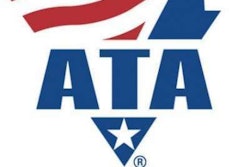California Congresswoman Barbara Lee helped the Port of Oakland reach a funding milestone of nearly $350 million for harbor deepening and maintenance. Deeper vessel channels mean that the port can remain competitive globally, support job retention and growth, and drive positive economic impact for the region, state and nation.
Of the nearly $350 million, Lee says the port received $242 million for harbor deepening and $103 million for maintenance dredging. The U.S. Army Corps of Engineers already has begun its annual maintenance dredging that keeps Oakland’s harbor navigable and at a depth of minus 50 feet.
“Investment in goods movement infrastructure is so central to ensuring that the port continues to be a competitive player in the global marketplace,” Lee says. “As we face rampant unemployment and unacceptable levels of poverty in Oakland and in cities across the country, the federal government must continue to support and invest in economic and job creating engines such as the port.”
More than 2,000 container ships call the Port of Oakland each year. Federal funding is required to enable the U.S. Army Corps of Engineers to maintain the Oakland channel at minus 50 feet. Annually, port customers pay taxes into the Harbor Maintenance Trust Fund with assurances that the money will be available to pay for navigational maintenance and harbor improvements. The revenues deposited in the Harbor Maintenance Trust Fund are not being fully spent, and instead of investing these funds to keep U.S. ports competitive, the trust fund has built up a surplus of more than $5 billion.
“The Port of Oakland, through its activities and those of our tenants, supports more than 70,000 jobs in the region,” said Port Executive Director Omar R. Benjamin. “Federal support for dredging is crucial because local jobs are dependent upon the flow of commerce. The Port of Oakland is grateful to Congresswoman Lee for her efforts to ensure that Harbor Maintenance Tax funding is spent appropriately, which will positively impact our port and our region.”










